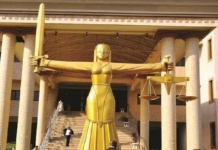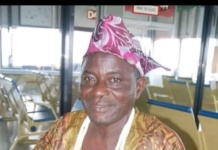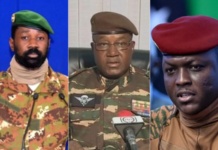
By Olakunle Agboola – Every generation has its revolutionaries—those who refuse to bow, those who dare to imagine differently. Burkina Faso, one of West Africa’s poorest but proudest nations, is once again in the international spotlight, not for war or famine, but for its defiance.
At the heart of this defiance stands Captain Ibrahim Traoré, a young, fiery military leader drawing comparison to the legendary Thomas Sankara. Just like Sankara, Traoré is under threat—more than 15 assassination attempts reported. Yet, like his ideological predecessor, he stands unshaken.
What’s really at stake here? Why is Traoré suddenly so dangerous to global powers? And what does this say about the role of ECOWAS, its allegiance to Western interests, and the urgent awakening stirring across Africa?
Revolution Revisited
Thomas Sankara governed Burkina Faso between 1983 and 1987. In just four years, he achieved what many post-independence African leaders failed to even attempt. He renamed the country from Upper Volta to Burkina Faso—”Land of Upright People”—and launched sweeping reforms: land redistribution, public health campaigns, anti-corruption drives, and fierce resistance to IMF and World Bank economic dictates.
Sankara’s government refused foreign aid with strings attached. He insisted that Africa must feed, heal, and educate itself—or remain in chains. That resistance came at a price. In 1987, he was assassinated in a coup widely believed to have been aided by foreign intelligence and orchestrated internally by Blaise Compaoré—his close ally turned betrayer.
Sankara was silenced. But his message refused to die.
A New Flame Ignites
Fast-forward to 2022. Amid a backdrop of growing insecurity, public frustration with France’s military footprint, and political stagnation, Captain Ibrahim Traoré emerged following a coup that ousted Lt. Col. Paul-Henri Damiba.
At just 34, Traoré didn’t promise miracles. He promised accountability and sovereignty—and started delivering. He banned medical tourism for government officials, redirected funding into local healthcare infrastructure, and offered financial support to university students.
He pushed for agricultural reform, moved to nationalize resources, and emphasized military self-reliance. Traoré’s rhetoric, like Sankara’s, was clear: Burkina Faso must serve its people, not the interests of foreign powers.
Yet this time, there was a new player at the table—Russia.
Partner or Proxy?
Let’s be real: Russia is no saint. It is a geopolitical actor like the rest. But its growing relationship with Traoré—and by extension with other Sahel nations like Mali and Niger—has redefined regional alliances.
While Western powers have historically conditioned aid on economic “reforms” and political compliance, Russia offers weapons, trade, and training—without lectures. Whether strategic or opportunistic, Moscow’s engagement is being perceived in parts of Africa as liberating, not controlling.
Critics ask: Is Russia replacing the West only to demand its own dues later? Fair question. But for African nations long suffocated by the IMF’s austerity, the current shift is more about agency than allegiance.
Traoré seems aware of the risks. He’s walking a tightrope: cooperating with Russia, not surrendering to it. His challenge is to use the partnership to buy time and space for African-led development—not trade one master for another.
Defender of Democracy or Pawn of Foreign Powers?
ECOWAS (Economic Community of West African States), under the chairmanship of Nigerian President Bola Ahmed Tinubu has taken a hardline stance against Burkina Faso, Mali, and Niger—threatening sanctions, demanding democratic restoration, and decrying military coups.
Recently, there have even been talks within ECOWAS of removing Traoré, accusing him of “undermining democracy” and disrupting constitutional order.
But here’s the twist: The people of Burkina Faso don’t want him gone. They chant his name in the streets. They carry his photos in rallies. They say, “He is our leader. He listens to us. He walks among us.”
So, whose democracy is ECOWAS defending?
Why is an organisation meant to serve African interests parroting Western outrage while ignoring the will of the Burkinabè people? Is ECOWAS simply working as a proxy for the West, helping to maintain the same old systems that have failed the continent for decades?
Africa’s Quiet Rebellion
Tired of being treated as junior partners in their own region, Burkina Faso, Mali, and Niger have formed the Alliance of Sahel States—a bold, new pact aimed at mutual defense, trade cooperation, and regional autonomy.
It’s more than a military alliance—it’s a message.
A message to ECOWAS: We don’t need to beg for inclusion. We’ll build our own table.
A message to France, the EU, and the US: The age of unilateral influence is over.
And most importantly, a message to Africans everywhere: Unity is not only possible—it’s necessary.
Why the West Feels Threatened
Let’s not beat around the bush. Traoré’s real crime in the eyes of the West is not his military background. It’s not the Russian alliance. It’s not even a coup.
It’s his audacity.
He dares to reject foreign loans.
He dares to nationalise gold, cotton, and other natural resources.
He dares to speak to the people directly—and they listen.
For decades, Western powers have relied on compliant African leaders who toe the line, accept poor trade deals, and outsource national security. Traoré is none of that. He is a disruptor—and disruption is bad for business.
If Burkina Faso succeeds outside the IMF model, what stops Ghana, Senegal, or Cameroon from trying the same? What if African nations realize that their natural wealth, when properly managed, can fund their own futures?
That’s the threat. That’s why assassination plots are swept under the carpet, and smear campaigns are subtly rolled out through international media.
A Continent at the Crossroads
Skeptics argue: Isn’t this just another strongman story? Aren’t we replacing one autocrat with another?
Possibly. But this moment is bigger than Traoré. It’s about African people deciding who governs them—not ECOWAS, not France, not Washington.
It’s about a new generation rising—not with guns, but with vision. A generation that has seen enough of “democratic” governments that deliver poverty, corruption, and collapse.
Traoré may not be the messiah, but he is a message.
Africa’s Time to Choose
Captain Ibrahim Traoré represents a fork in the road for Africa. Down one path lies the status quo: foreign dependency, broken systems, and endless summits with no substance.
Down the other lies something far riskier—but far more promising: sovereignty, unity, and self-determination.
No, he’s not perfect. No leader is. But Traoré is asking the right questions. He’s confronting the right enemies. And he’s attemptingthe impossible—an Africa that serves Africans first.
If that makes him dangerous in the eyes of the West, then maybe he’s exactly what this continent needs.
The world may be watching him with itchy fingers and fearful eyes, but the people of Burkina Faso are watching with hope.
And that, perhaps, is the greatest threat of all—to those who’ve long profited from Africa’s silence.








